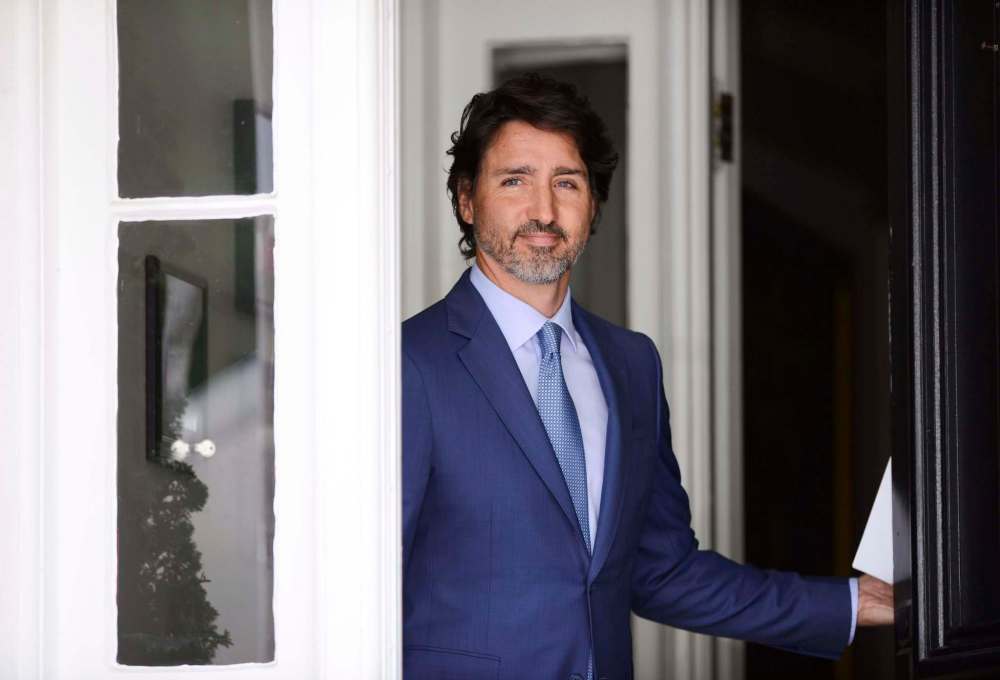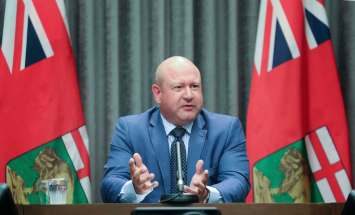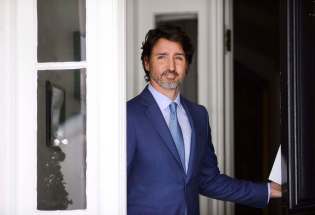Time to replace haste with discipline
Read this article for free:
or
Already have an account? Log in here »
To continue reading, please subscribe:
Monthly Digital Subscription
$0 for the first 4 weeks*
- Enjoy unlimited reading on winnipegfreepress.com
- Read the E-Edition, our digital replica newspaper
- Access News Break, our award-winning app
- Play interactive puzzles
*No charge for 4 weeks then price increases to the regular rate of $19.00 plus GST every four weeks. Offer available to new and qualified returning subscribers only. Cancel any time.
Monthly Digital Subscription
$4.75/week*
- Enjoy unlimited reading on winnipegfreepress.com
- Read the E-Edition, our digital replica newspaper
- Access News Break, our award-winning app
- Play interactive puzzles
*Billed as $19 plus GST every four weeks. Cancel any time.
To continue reading, please subscribe:
Add Free Press access to your Brandon Sun subscription for only an additional
$1 for the first 4 weeks*
*Your next subscription payment will increase by $1.00 and you will be charged $16.99 plus GST for four weeks. After four weeks, your payment will increase to $23.99 plus GST every four weeks.
Read unlimited articles for free today:
or
Already have an account? Log in here »
Hey there, time traveller!
This article was published 20/07/2020 (1972 days ago), so information in it may no longer be current.
Canada’s government has been running largely in panic mode since mid-March, adopting heroic measures to curb the coronavirus pandemic and sustain the national economy through the emergency. But Canadians have now learned how to live with a COVID-19 pandemic and the economy is recovering reasonably well from the effects of lockdown.
It’s high time for the government to pull back from its panic attack, take a deep breath and impose better discipline on itself.
The WE Charity episode, in which the government casually awarded a large contract to friends of Prime Minister Justin Trudeau to administer a hastily improvised government program, was a symptom of a government losing a sense of discipline. The resulting drop in public confidence in Mr. Trudeau’s party, seen in opinion polling this week, shows the public has taken note of the wobbly leadership in Ottawa.

The World Health Organization declared a pandemic on March 11. In the following days, Canada gradually shut down travel, repatriated Canadians stuck overseas and supported provinces as they ordered lockdowns and closed schools. Day after day, the government announced new programs to borrow funds from the banking system and hand money out to employers and families to keep the wheels of business turning so far as possible.
The strategy worked. The daily tally of new cases, which peaked around 2,000 a day in late April, dropped below 500 new cases per day in early June and stayed there. Unemployment, which peaked at 13.7 per cent in May, recovered to 12.3 per cent in June. Plenty of Canadians are still hurting or unsure about their job prospects, but businesses in all provinces are starting to reopen and the worst — or at least, the worst of the current pandemic wave — is clearly behind us.
The contrast with the United States is striking. The U.S. Centers for Disease Control and Prevention were reporting between 20,000 and 30,000 new cases per day all through April, May and early June. That tally has been rising rapidly for the last five weeks to reach, this week, a seven-day average of 66,000. Florida, Texas, Arizona, California and other states that had already re-opened bars and restaurants started closing them again.
In those places, the worst is yet to come. That’s what an out-of-control epidemic looks like.
In the conditions that prevail here, however, the need for heroic measures by the Canadian government is winding down. The measures already adopted are having the desired effect and must be continued. The next bright idea for shipping money out of Ottawa in carload lots should be received coolly and subjected to the cautious and skeptical study that would have been applied six months ago, before the panic button was pushed.

Mr. Trudeau’s manner of leading the national effort won widespread approval from provincial leaders and from the broad public. New poll results this week, however, showed a drop of five points in the percentage of people who have a positive impression of Mr. Trudeau and a corresponding five-point increase in those with a negative impression. On balance, the country still likes him, but the WE Charity episode has tested the public’s patience.
In the early days of the coronavirus response, Mr. Trudeau explained all snafus by saying the government had to act quickly. That excuse no longer applies. The pressure has abated. Now the government has to act carefully.






